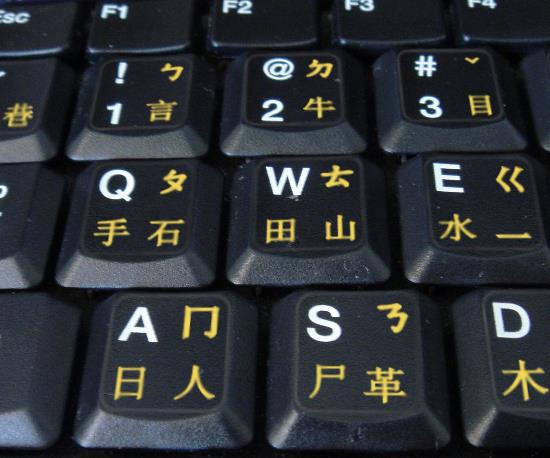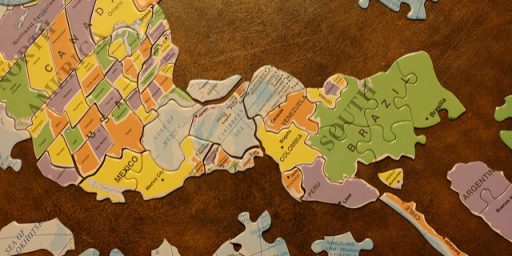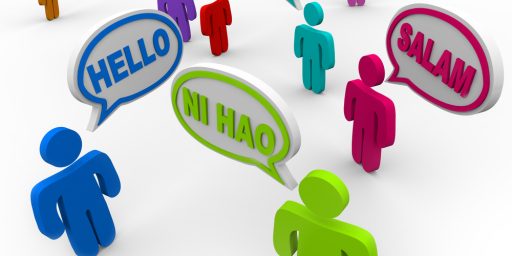Web’s Latin-Only Policy Ending
 Starting in two weeks, users from countries who don’t use the Latin alphabet will find using the Internet much easier, FT reports.
Starting in two weeks, users from countries who don’t use the Latin alphabet will find using the Internet much easier, FT reports.
Latin script’s monopoly in internet domain names will end next month, a development that could usher in a fresh wave of internet usage from Bulgaria to China.
So far, finding web addresses has required some basic familiarity with Latin letters — a deterrent for many, particularly older users. Fully opening cyberspace to scripts ranging from Amharic to Tamil will also give even greater prominence to search engines, say experts. The country designation of addresses — such as .ir for Iran and .kr for South Korea — has always been written in Latin. But at a meeting in Seoul, the Internet Corporation for Assigned Names and Numbers, a non-profit group that co-ordinates website domains, said it would start from November 16 to take applications for national codes written in Cyrillic, Arabic, Korean and Chinese. Other scripts will follow and the first non-Latin domains will go live in 2010.
“This is only the first step, but it is an incredibly big one and a historic move toward the internationalisation of the internet,” said Rod Beckstrom, Icann’s president. “We just made the internet much more accessible to millions of people in regions such as Asia, the Middle East and Russia.”
About half of the world’s 1.6bn internet users are speakers of languages that do not use Latin script, said Icann. China has the world’s greatest number of internet users, estimated at 340m. “This is a huge and positive change in internet history. This will bring access for more people to get to know the internet without even a basic knowledge of English letters, for example many of our senior citizens,” said Wang Peng, senior project manager at HiChina, the country’s leading internet service provider
Changing two letters such as .cn may appear a small step, but computer experts say many people in China do not know how to switch the keyboard to Latin letters, instead finding websites by following links. Being able to type addresses themselves could take users to more minority interest sites, a factor with important political implications in China.
My initial reaction was that this will really undermine the connectedness of the Web, turning URLs into a Tower of Babel. But, having never encountered a keyboard problem more significant than wishing there were an easier way to type umlauts, it never occurred to me how much of an inhibition the Latin alphabet was. Having to switch between keyboard sets and having to recognize long strings of characters in foreign symbols is a rather huge barrier to entry.
UPDATE: PC World‘s Jacqueline Emigh points to some drawbacks, some of which occurred to me but go beyond my technical expertise.
Yet on the other hand, the new names carry risks for new security concerns and general user confusion. Some fear the Web might grow increasingly fragmented into areas easily accessible only to those conversant in local languages.
[…]
How will you be able to type the domain names of international Web sites when your keyboard doesn’t support their character sets? It would be logistically just about impossible for a PC maker to supply a keyboard supporting the Western “ABC” alphabet, along with the disparate character sets used in all of these tongues, for example: Japanese, Arabic, Greek, Hebrew, Cyrillic, and the Central and European languages.
[…]
It looks as though we could see the development of a whole new class of Web domains that most people won’t be able to get to easily — even though they might be able to find those Web sites with a search engine.
Certainly language translation services and technology may be the biggest winners with today’s news. I predict both will flourish along with an international land grab for variations of the word “sex” dot-com.
Of the last, there’s not much doubt.






Screw these countries. The internet was invented by our troops. If the countries with bizarre and backward alphabets want to be catered to, let them develop they own internet.
This is just a (not-so) veiled attempt at anti-Americanism. Unfortunately, I am sure Hussein Obama will require America to start writing in some politically-correct language to appease his foreign patrons.
Better start practicing your esperanto in the land of Obama.
I’m sorry if this makes me a xenophobe, but what exactly did Al Gore invent the internet for if it wasn’t to use American military technology as a soft power extension of American hegemony? A better use of the unspent stimulus money would be to hire google to filter non-Latin usage, assuming Google wouldn’t have a problem working with government like that.
@Triumph:
You know, not everything is about you.
Wow, I’m surprised Triumph and I had similar reactions, I was pretty sure he would have been excited by the prospects of expanded internet usage to the far reaches of the world so that we could finally learn where Barry was really born.
The internets won’t help in that regard. It is pretty well established that his foreign birth records have been purged. No internet in the world will help us find them.
How do you spell MILF in cyrillic?
The thing, though, is that a web site that has a name not in the Western alphabet is not likely to be a site that you want to go to anyway. So, it doesn’t matter that much you don’t know how to type it.
Well, you are a Republican, after all 🙂
Or, they could just register multiple localized domain names that all point to the same site.
It’s an interesting idea. As someone who studies some of the languages in question, I would think that computer designers can just make all computers have the necessary fonts to switch between them. As it is, you can often download manufacturer’s patches to set your system up with foreign fonts that you need. Of course, you would need to be able to read those languages, but if you didn’t, you probably wouldn’t want to access them in the first place.